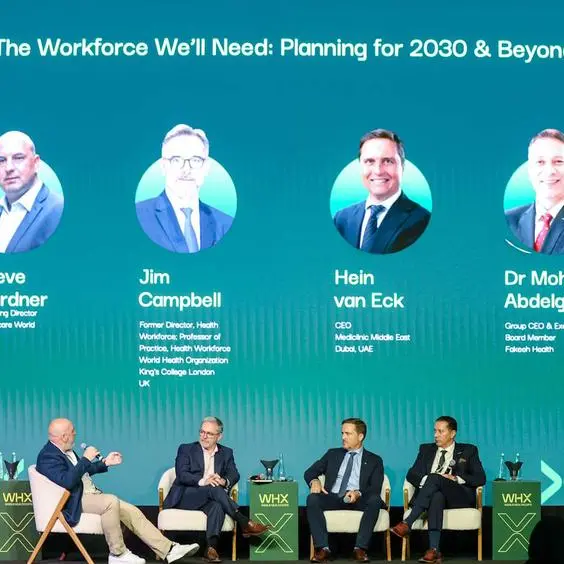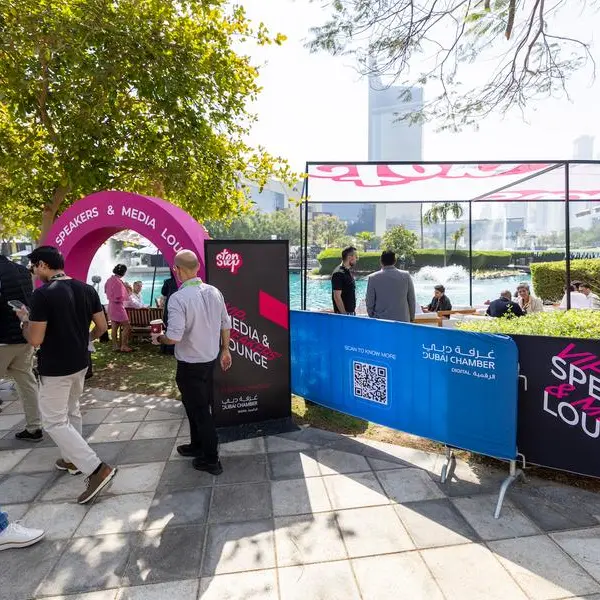Slowdown in global growth and increasing number of graduates entering the job market driving competition for premium careers
HSBC research reveal 48% of UAE parents believe children today face a tougher job market
92% think a university education is vital for children to achieve life goals
Challenges in meeting ambitions as 64% think university is unaffordable for most people
Dubai, UAE: With the increasing complexity in global markets and a middle class population boom in emerging economies driving the race for premium careers worldwide, new generations of university graduates will need to become increasingly qualified academically in order to stand out from the competition. This will require years of higher education and this belief is becoming increasingly apparent among UAE parents as a new report from HSBC reveals that over 9 out of 10 (92%) believe that a university education is essential for their children to achieve their life goals.
Navigating a tougher job climate
Examining the views of over 5,550 parents across 16 countries, and over 450 from the UAE, HSBC's Value of Education 2015: Learning for life report showed that parents across the world are recognising that their children face a tougher job market today, with nearly half of UAE parents with university-age children (48%) reflecting this sentiment.
Findings from the International Labour Organisation reiterate these attitudes as the global jobs market is forecasted to deteriorate in the coming years, which will drive income inequality and higher youth unemployment. While unemployment globally is expected to rise from 201 million in 2014 to 212 million by 2019, young people - aged 15 to 24 - are expected to disproportionately make up this market, representing almost three times more of this group than their adult counterparts.[i]
"It's not surprising to see that parents today are becoming increasingly concerned about the career prospects for their children. Over the last ten years, we have seen growing volatility in global markets, and the increasingly interconnected nature of the economy today means that its effects are being felt by people across the world. This complex environment reveals the reason parents are relying on higher education to give their children the foundation they need to succeed in life," said Khalid Elgibali, Head of Retail Banking and Wealth Management, UAE and MENA, HSBC Bank Middle East Limited.
Due to the concerns expressed by parents, HSBC's research shows that they have high aspirations for their children's education. Those in the UAE are among the most career-minded globally, with 89% having considered a specific occupation for their children. One-third (33%) hope for their children to study medicine - the highest proportion globally to express this sentiment - while other popular careers include engineering (16%) and computer science (11%).
Parents also appear to have these high ambitions as they recognise that the job market is getting increasingly competitive, and this is being driven by a population boom in emerging markets. With 356 million 10 to 24 year olds, India has the highest youth population globally, followed by China (269 million), according to the United Nations.[ii] As these two nations make up the highest proportion of overseas students in international education markets most valued with UAE parents - the UK and the US[iii] - they are increasingly looking for ways to give their children a leg up over the competition. Consequently, 80% of parents here think it is vital for their children to get a postgraduate degree, the second highest globally to express this sentiment.
Addressing the gap between expectations and reality
Although parents in the UAE clearly have high educational aspirations and many want high-profile careers for their children, these goals often require years of financial planning, which is where there appears to be a gap between expectations and reality. While a majority of parents in the UAE that would consider sending their children aboard would be willing to pay more that it would cost domestically (74%), nearly two-thirds in the country (64%) think that education is unaffordable for most people.
Further evidence that parents are unprepared financially when it comes to funding their child's university education is that while two-thirds (66%) with pre-primary school children think they will save enough and only 11% think they will rely on day-to-day income, only 40% with children actually in university said they have a savings plan and up to 34% end up covering expenses through daily income. HSBC's research also shows that over one in five parents (21%) who said that they had not saved enough had not done so because they had not given it enough thought or had dismissed it as being too early to start.
"We see that as early as the pre-primary school, more than four in five (87%) parents have thought about what they would like their children to be when they grow up, however, the requirements needed to support these aspirations are being left till much later even though parents recognise the value of university education. With an increasingly competitive marketplace, tertiary education will only become increasingly important, but parents in the UAE need to start looking at this more proactively if they are going to give their children the foundation they need to succeed in their endeavours," Elgibali added.
-Ends-
Media enquiries to:
Farah Farooq
Natasha Maunsell
+971 56 6867337
+971 569 936903
farah.farooq@hsbc.com
Natasha.maunsell@hsbc.com
Ahmad Othman
+971 50 3069313
ahmad.othman@hsbc.com
The Value of Education
The Value of Education Learning for life, was published in July and represents the views of 5,550 parents in 16 countries and territories around the world: Australia, Brazil, Canada, China, France, Hong Kong, India, Indonesia, Malaysia, Mexico, Singapore, Taiwan, Turkey, United Kingdom, United Arab Emirates and United States.
The survey was conducted online in by Ipsos MORI in March and April 2015, with additional face-to-face interviews in the UAE. The findings are based on a nationally representative survey of parents in each country who have at least one child aged 23 or younger currently (or soon to be) in education, and who are solely or partially responsible for making decisions about their child's education. There was a minimum sample of 300 parents in each country.
HSBC in the MENA Region
HSBC is the largest and most widely represented international banking organisation in the Middle East and North Africa (MENA), with a presence in 10 countries across the region. HSBC has operations in the United Arab Emirates, Egypt, Qatar, Oman, Bahrain, Kuwait, Lebanon, Algeria and the Palestinian Autonomous Area. In Saudi Arabia, HSBC is a 40% shareholder of Saudi British Bank (SABB), and a 49% shareholder of HSBC Saudi Arabia for investment banking in the Kingdom.
This presence, the widest reach of any bank in the region, comprises some 267 offices and around 12,000 employees. In the first half of 2015, HSBC in the MENA region made a profit before tax of US$ 901m.
[i] www.ilo.org/wcmsp5/groups/public/---dgreports/---dcomm/---publ/documents/publication/wcms_337069.pdf
[ii] http://www.unfpa.org/sites/default/files/pub-pdf/EN-SWOP14-Report_FINAL-web.pdf
[iii] HSBC Value of Education 2014 research
© Press Release 2015


















